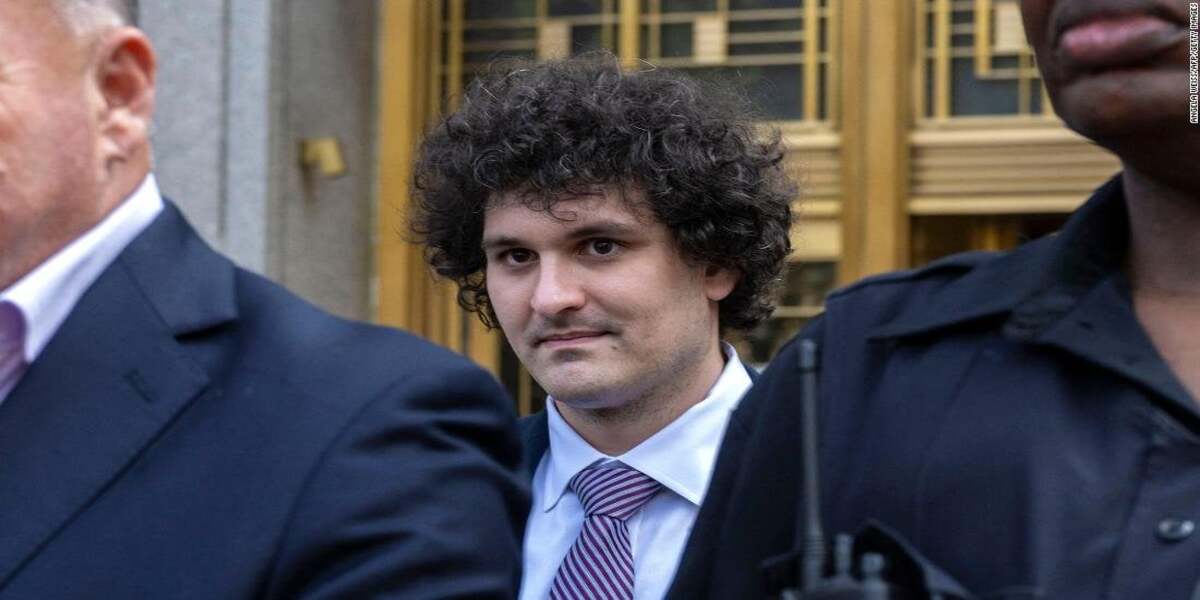Key Insights:
- Sam Bankman-Fried’s sentencing to 25 years reflects a compromise between the prosecution’s demand for up to 50 years and the defense’s pleas for leniency.
- Judge Kaplan criticized Bankman-Fried for his lack of remorse and the potential future risks he poses, emphasizing the severity of his crimes.
- Bankman-Fried’s trial showcased a significant fall from grace, highlighting the devastating impact of his actions on FTX customers worldwide.
Sam Bankman-Fried, the founder of the once-giant exchange FTX, was sentenced to 25 years in prison. This judgment came as a result of his involvement in a complex fraud scheme that led to the collapse of his cryptocurrency exchange and the hedge fund, Alameda Research. Additionally, he has been ordered to pay an unprecedented forfeiture sum of $11 billion to the U.S. government, as ruled by the Manhattan federal court.
SBF has been sentenced to 25 Years in prison pic.twitter.com/Oy2JzKareD
— Altcoin Daily (@AltcoinDailyio) March 28, 2024
This sentence, although less than the 40 to 50 years sought by federal prosecutors, surpassed the leniency requested by Bankman-Fried’s defense, which suggested a term of five to six-and-a-half years. Judge Lewis Kaplan, presiding over the case, expressed concerns over the potential future risks posed by Bankman-Fried, emphasizing the lack of remorse shown by the defendant for his actions.
During his tenure on the bench, spanning 30 years, Judge Kaplan remarked on never witnessing testimony like Bankman-Fried’s, describing it as either outright lying or evasive. This lack of trustworthiness, according to Kaplan, has tarnished Bankman-Fried’s reputation globally.
The verdict in November found Bankman-Fried guilty of seven criminal charges, attributing to him the loss of approximately $10 billion in customer funds. The prosecution argued that Bankman-Fried led a scheme to misappropriate customer funds for investments, political donations across party lines, personal use, and repayment of loans by Alameda Research.
Sam Bankman-Fried, in a statement before his sentencing, expressed regret over the downfall of FTX and attributed the losses to a “liquidity crisis” or “mismanagement,” rather than outright fraud. He acknowledged the disappointment and hurt felt by many, stating his sorrow for the events that unfolded under his leadership.
However, even as he accepted some level of responsibility, Sam Bankman-Fried suggested that customers would eventually recover their lost funds, a statement met with skepticism by the court. His remarks prompted Assistant U.S. Attorney Nicholas Roos to emphasize that the collapse of FTX was due to theft, not mismanagement, affecting people globally.
Defense arguments highlighted Sam Bankman-Fried’s psychological struggles, with references to his personal journals and his mother’s insights into his character. Despite these personal challenges, the defense’s portrayal of Bankman-Fried as a non-traditional financial criminal did not sway the court’s decision.
Judge Kaplan, before delivering the sentence, refuted claims of no financial loss at FTX, labeling such assertions as misleading. The emotional testimonies from victims of the fraud painted a vivid picture of the widespread impact of Bankman-Fried’s actions.
Following the sentencing, U.S. Attorney Damian Williams and Attorney General Merrick Garland issued statements condemning Sam Bankman-Fried’s conduct and reaffirming the commitment to prosecuting financial crimes, regardless of the perpetrator’s status or the complexity of the crime.

